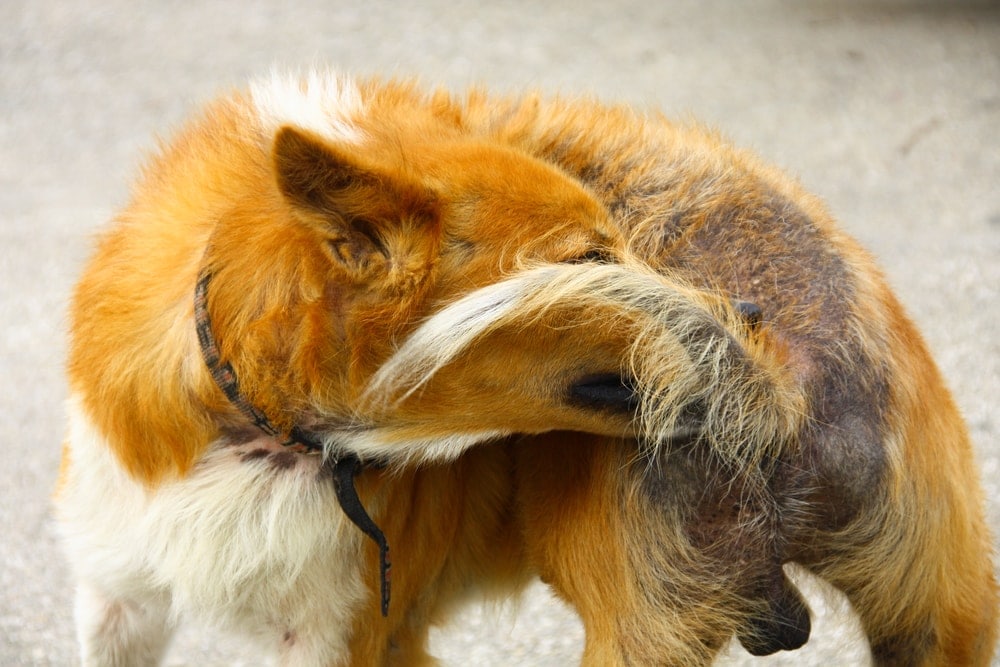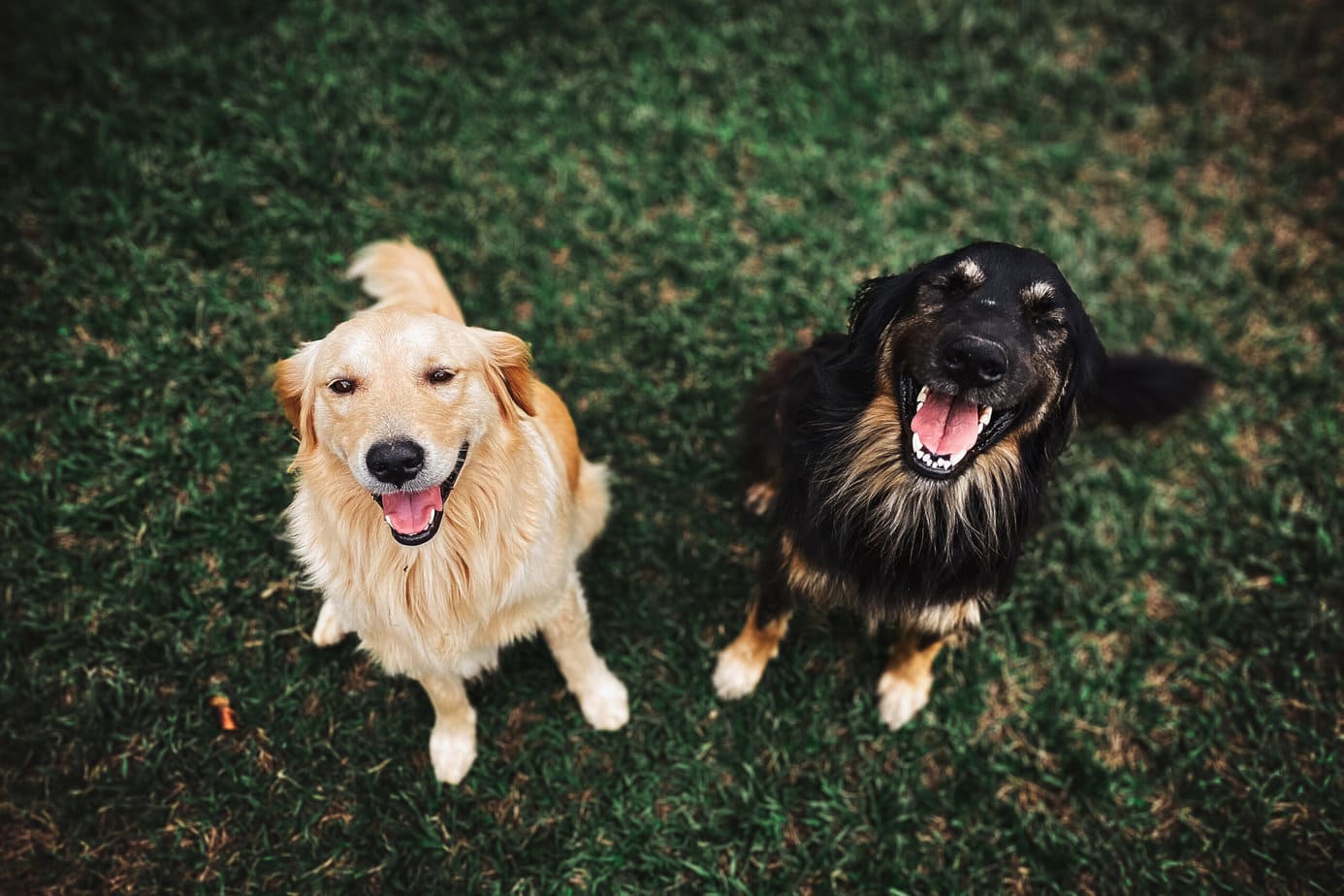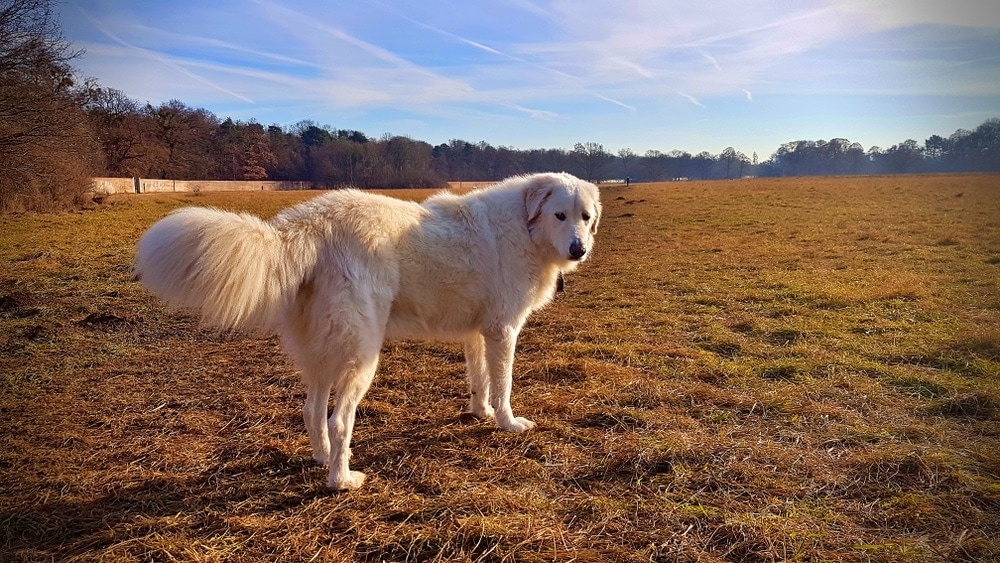It is not normal for any animal constantly bite its tail. It is especially not good if their tail starts bleeding as a result of this behavior. We will explore some of the most common reasons why dogs do this.
Of course, it can itch like any part of the animal (or human) body, so no reason to worry if it happens once in a while. But if you see that it is bothering your dog and it’s constantly itching and licking until open wound it is time to figure out why.
The best solution is to visit your veterinary and make some tests that will show exactly what is going on with your canine friend. But if you want to know in advance what to expect, here is the answer to the question: Why does Your Dog Bite His Tail Until It Bleeds?
The most common reason why your dog bites its tail is allergic dermatitis. The tail is itching due to an allergic reaction. Among other reasons are stress, parasites, poor diet, and impacted anal glands. Contact your vet for a proper diagnosis.
Let’s talk a little bit more deeply about every possible problem with your dog’s tail in this article.
4 Reasons Why Your Dog is Biting its tail until it bleeds
Hot spots are places on a dog’s body where your pup repeated licking and biting has led to an open wound, which can develop a secondary infection and inflammation that causes further pain, and as a result, more chewing over and over again. In dog’s saliva might contain bacteria causing secondary inflamation.
1. Allergic Reaction
Dogs can have allergies just like humans, and they react to them in a number of ways. Some dogs begin biting their tail because it itches. Since your dog isn’t capable of scratching its tail, it might bite it instead. If their allergies are bad enough, they might start biting themselves to the point of drawing blood.
Your dog could be allergic to anything from dust mites, pollen, and mold to certain foods. These animals often experience allergic reactions from household chemicals or environmental allergens as well. There is no telling what will cause your dog to have this sort of reaction.
You can take your dog to the vet to get a skin test, which will give you a better idea as to what it is allergic to. This test doesn’t account for everything though, so you’ll need to keep that in mind.
Some of the other symptoms of an allergic reaction in dogs include:
- Hives
- Swelling of the face
- Red/irritated skin
- Hot to the touch
- General agitation
If you suspect that your dog is having an allergic reaction to something, you should get them to the vet right away. They can administer an antihistamine, which is usually very effective at treating the symptoms of allergies. Food allergies are very common among dogs, especially small breeds.
2. Parasites
It is not uncommon for parasitic infections to cause a dog to bite at its own tail. This is usually the case with external parasites (arthropods) like ticks and fleas that live on or under the skin. Your dog could be biting at its tail because the skin itches due to flea bites.
There are numerous treatments available that are very effective at treating parasites like ticks and fleas. Your dog could also have tapeworms, which can lead to severe itching and discomfort around the anus. If you’ve noticed your dog biting at the base of its tail, this is most likely the cause.
Ticks and other parasites can do a lot of damage if they are left unchecked, so you will need to get your dog treatment as soon as possible. The longer you put this off, the more likely they are to develop serious health complications.
Regular baths, medical collars, and shampoos, drops may treat the parasitic infestations.

3. Stress
Stress and anxiety can manifest in all sorts of different ways with dogs, including tail biting. This could also be your dog’s way of expressing boredom. If you aren’t spending enough time with them on a daily basis, they could begin acting in a self-destructive manner.
The fact is that there are many things that are known for causing stress in dogs. Even moving to a new home can cause these animals quite a bit of anxiety. There are some dogs that are naturally more high strung than others.
While stress is usually something that passes with most dogs, it may be necessary to put yours on medication. Your veterinarian will be able to make a recommendation.
4. Impacted Anal Glands
There is also a possibility that your dog’s anal glands are impacted. This occurs when the anal glands do not flush out by themselves. These glands can become choked with fluid, which can cause numerous problems.
A dog’s anal glands play an important role in socializing with other dogs. This is why you’ll see a dog smell another’s butt when they first meet them. It is sort of a way for them to get to know each other.
If your dog’s anal glands are impacted, you’ll need to get them expressed by your veterinarian. This is a perfectly safe process that is usually very effective at providing dogs with relief.

How to Stop Your Dog’s Tail Biting
There are a number of effective methods that you can use when it comes to putting a stop to your dog’s tail biting. You will need to consider the cause of this behavior to get the best possible results.
1. Comfort Your Dog
If your dog is biting its tail because of stress, you’ll want to comfort it as much as possible. This means speaking to them in a soothing voice and petting them gently.
2. Give them Toys
You should also try giving your dog some fun toys that they will enjoy chewing on. It could go a long way towards putting an end to this particular behavior. If your dog is currently in the teething phase, this is definitely something that you should try.
3. Take them to the Vet
If your dog is biting its tail to the point of bleeding, you should probably take them to the veterinarian as soon as possible. The fact is that there could be an underlying cause that you can’t see, like parasites or an allergic reaction.
Your vet will most likely be able to identify the cause of your dog’s tail biting and offer an effective treatment. If nothing you’ve tried at home seems to do any good, you’ll need to get them looked at right away.
4. Elizabethan Collars
Cones may seem like an extreme measure, but if it keeps your dog’s body from developing an infection and inflammation as a result of your dog’s biting, it is worth the pain and discomfort that your dog will probably suffer from.
Conclusion
- Your dog might be biting its own tail because it is experiencing an allergic reaction to something.
- Dogs can be allergic to anything from dust mites to various household chemicals.
- There is also a chance that your dog has parasites like fleas or ticks that are irritating the skin on their tail.
- If your dog is experiencing a lot of stress or anxiety, they might start biting their tail and other parts of their body.
- Many different things can cause stress in dogs, such as being introduced to a new home environment. It could also be due to the addition of a new dog in your house.
- Impacted anal glands are a common cause of tail biting. If this is the problem, your dog’s glands will need to be expressed by a trained vet.
- Make sure that you try to comfort your dog as much as possible to minimize this behavior.
- Do not punish your dog for biting its tail, as this could stress them out even more.











